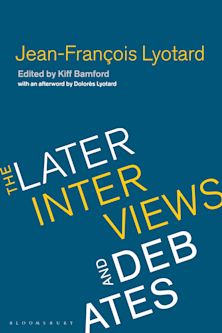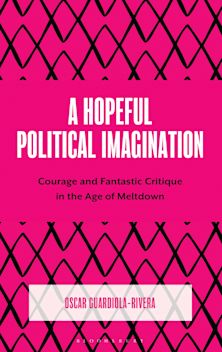- Home
- ACADEMIC
- Philosophy
- Social and Political Philosophy
- Just War Thinking
Just War Thinking
Morality and Pragmatism in the Struggle against Contemporary Threats
Just War Thinking
Morality and Pragmatism in the Struggle against Contemporary Threats
This product is usually dispatched within 3 days
- Delivery and returns info
-
Free US delivery on orders $35 or over
You must sign in to add this item to your wishlist. Please sign in or create an account
Description
Just War Thinking: Morality and Pragmatism in the Struggle Against Contemporary Threats reconsiders the intersection between morality and pragmatism in foreign policy and modern warfare. Whereas recent explications of "Just War theory" neglect how twenty-first century wars differ from the old wars that Just War doctrine was originally designed for, this book argues that a political ethic of responsibility should motivate the contemporary application of military force by states in order to protect international security and human life. Just War Thinking criticizes the quasi-pacifism of most formal Just War scholarship, reconceptualizes a minimal, realistic "just war thinking" framework for exploring foreign and military policy options, and evaluates the usefulness of this approach by investigating contemporary cases such as the war on terrorism in Afghanistan and Iraq, the call for assassination of political leaders, and military humanitarian intervention. Finally, the book considers new challenges to pragmatic yet moral policies: the neglect of jus post bellum (justice at war's end); the challenge of public opinion, democratic processes, and supranational institutions to policies based on just war thinking; and the erosive power of postmodernism to the normative structures guiding Western decision-makers.
Table of Contents
Chapter 2 Chapter 1. Old Wars vs. New Wars: The Challenges of the 21st Century
Chapter 3 Chapter 2. The Triumphs and Failings of Just War Thinking
Chapter 4 Chapter 3. Political Responsibility and the Decision to go to War (jus ad bellum)
Chapter 5 Chapter 4. Fighting to Win: The Nexus of Morality and Practicality (jus in bello)
Chapter 6 Chapter 5. Finishing Well: Security and Punishment at War's End (jus post bellum)
Chapter 7 Chapter 6. Public Opinion, Postmodernism, and Supranational Governance: Challenges for New Thinking on Just War
Product details
| Published | Aug 16 2009 |
|---|---|
| Format | Paperback |
| Edition | 1st |
| Extent | 142 |
| ISBN | 9780739119013 |
| Imprint | Lexington Books |
| Dimensions | 9 x 6 inches |
| Publisher | Bloomsbury Publishing |
About the contributors
Reviews
-
His familiarity with the body of just war literature and his unconventional approach to the question make his contribution worthy of critical engagement. Recommended.
Choice Reviews
-
Eric Patterson's small and eminently readable volume can easily serve as a digestible short introduction to the history and major components of the Just War tradition. His approach is especially helpful as a result of his concern with the changing nature of conflict in the contemporary environment.
Autumn 2008, Parameters
-
Eric Patterson succeeds in rescuing discussion about the justice of war from stale questions and arcane philosophy and brings analysis square into the most relevant debates of the age-humanitarian intervention, the war on terrorism, and justice after war's end. Ironically, he does so by returning to the very historical foundations of the just war tradition. And he does so with rhetorical force, conceptual clarity, and refreshing directness.
Daniel Philpott, University of Notre Dame


































